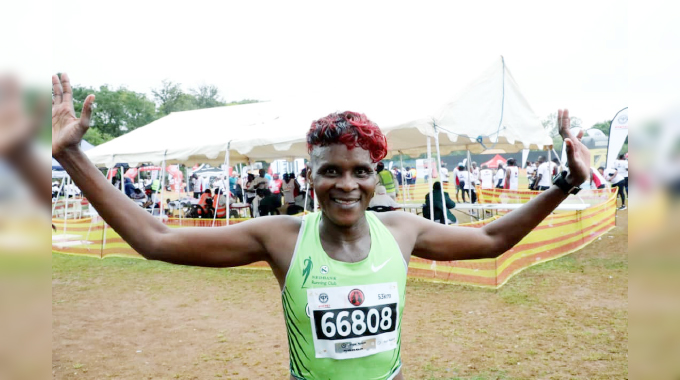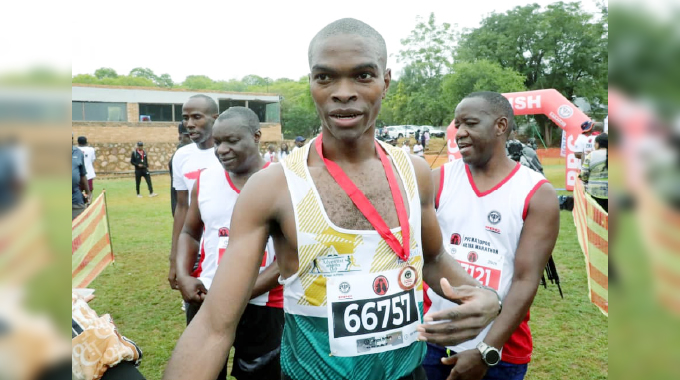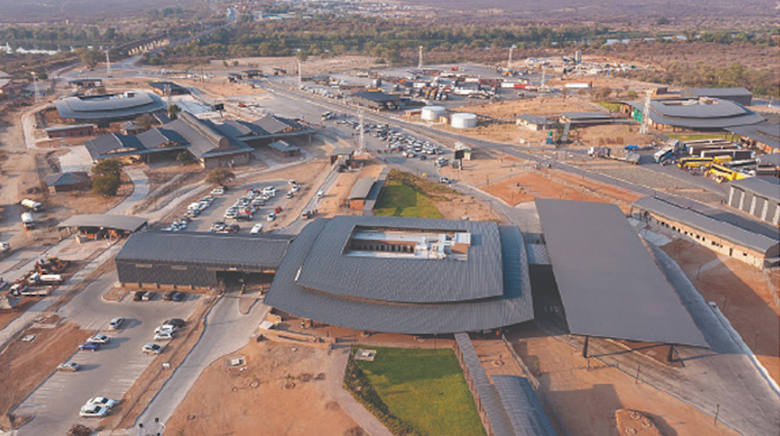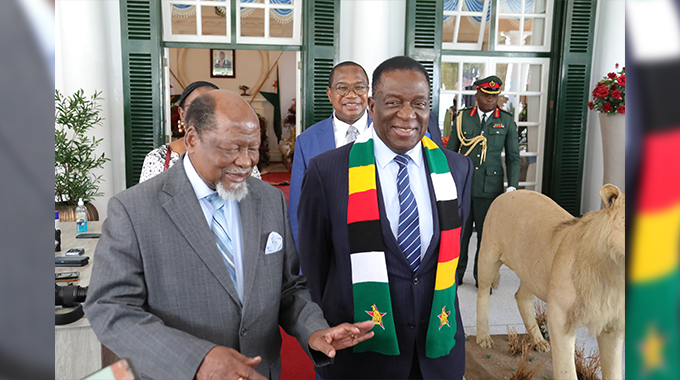WATCH : Top Zimbabwe athletes for Two Oceans Marathon

Lovemore Dube, [email protected]
THE National Athletics Association of Zimbabwe (NAAZ) has cleared some top Zimbabwe marathon runners to take part in the Two Oceans Marathon in South Africa’s Cape Town tomorrow morning.
But questions are flying about whether some of the athletes will have recovered from recent events.
The Two Oceans Marathon is among Southern Africa’s most popular and biggest ultra-marathons (over 42km) in the region drawing athletes from all over the world.
Among those cleared are Prosper Mutwira and Chiedza Chokore who won the PPC Matopos 33 Miler in Bulawayo on Sunday.
According to the list issued by NAAZ’s secretary-general Cynthia Phiri, Mike Fokoroni, Isaac Mpofu, Moses Tarakinyu, Wellington Varevi, Lyno Muchena, Prosper Mutirwa, Monica Kativhu, Patience Murove, Chiedza Chokore, Phillipa Dube, Anne Chirisa, Kelvin Pangiso, Charles Soza, Thabita Tsatsa, Ngonidzashe Ncube, have all been cleared for the event which has a 5, 10, 21 and 50km segments with the main event of the day being the longest.
It is also a qualifying competition for the famed Comrades Marathon, a race considered the ultimate of road-running at almost 90km.
Sports scientist Dr Bhekuzulu Khumalo yesterday raised a number of points for or against running long distances within a short space of time. Among the concerns is burnout as a result of failing to recover properly from an energy-sapping long-distance race.
Some of the athletes ran the whole 53km of the Matopos race last Sunday.
“Running 53 kilometres can have both physical and mental effects on the body. Physically, the athlete may experience muscle soreness, fatigue, and potential risk of injury, especially if they haven’t properly recovered. Mentally, they might feel drained or fatigued, but also accomplished and motivated by their achievement,” said Khumalo who is now based in Malawi and teaching.
He is credited with coaching some exciting talents in the 1990s and early 2000s in Sigonde, Matabeleland North and Bulawayo who specialised in long and middle distances among them Sikhulile Sibanda, Teurayi Chinguwa, Daliso Nkambule and Ishmael Nyandoro.
Khumalo is worried also about the distance the athletes will cover to get to Cape Town which is over 2 000km.

Prosper Mutwira
“Long-distance travel, especially over a distance of 2 000km, can have several effects on athletes preparing for competitions.
“To mitigate the effects of long-distance travel, athletes should prioritise strategies such as staying hydrated, maintaining a healthy diet, getting adequate rest, gradually adjusting to the new time zone and minimising exposure to germs. Planning ahead and allowing sufficient time for recovery and acclimatisation can help athletes optimise their performance despite the challenges of travel,” he said.
Some of the challenges are:
1. Jet Lag: Traveling across multiple time zones can disrupt the body’s internal clock, leading to jet lag. Symptoms include fatigue, insomnia, difficulty concentrating and gastrointestinal disturbances. Athletes may need a few days to adjust to the new time zone, potentially impacting their training schedule and performance.
2. Physical Fatigue: Long hours of sitting during travel can lead to physical fatigue and stiffness, particularly in the legs and lower back. This can affect an athlete’s readiness for training or competition upon arrival.
3. Dehydration: Airplane cabins have low humidity levels, which can contribute to dehydration. It’s essential for athletes to stay well-hydrated during travel to maintain optimal performance and aid in recovery.
4. Immune System Suppression: Traveling exposes athletes to crowded airports, airplanes and public spaces, increasing the risk of exposure to pathogens. The stress of travel combined with potential exposure to germs can weaken the immune system, making athletes more susceptible to illness.
5. Disruption of Routine: Traveling to a new location disrupts an athlete’s usual routine, including training schedule, diet and sleep patterns. Adjusting to these changes can be challenging and may affect performance.
6. Environmental Factors: Athletes traveling to competitions in different locations may encounter different climates, altitudes and air quality conditions. These environmental factors can impact training adaptation and performance, requiring adjustments in training and race strategy.
7. Logistical Challenges: Co-ordinating travel logistics, accommodation and transportation in an unfamiliar location adds stress and distraction for athletes, potentially affecting their mental focus and preparation for competition.
8. Time and Energy Drain: Traveling long distances consumes time and energy that athletes could otherwise allocate to training, recovery and mental preparation for the competition.










Comments